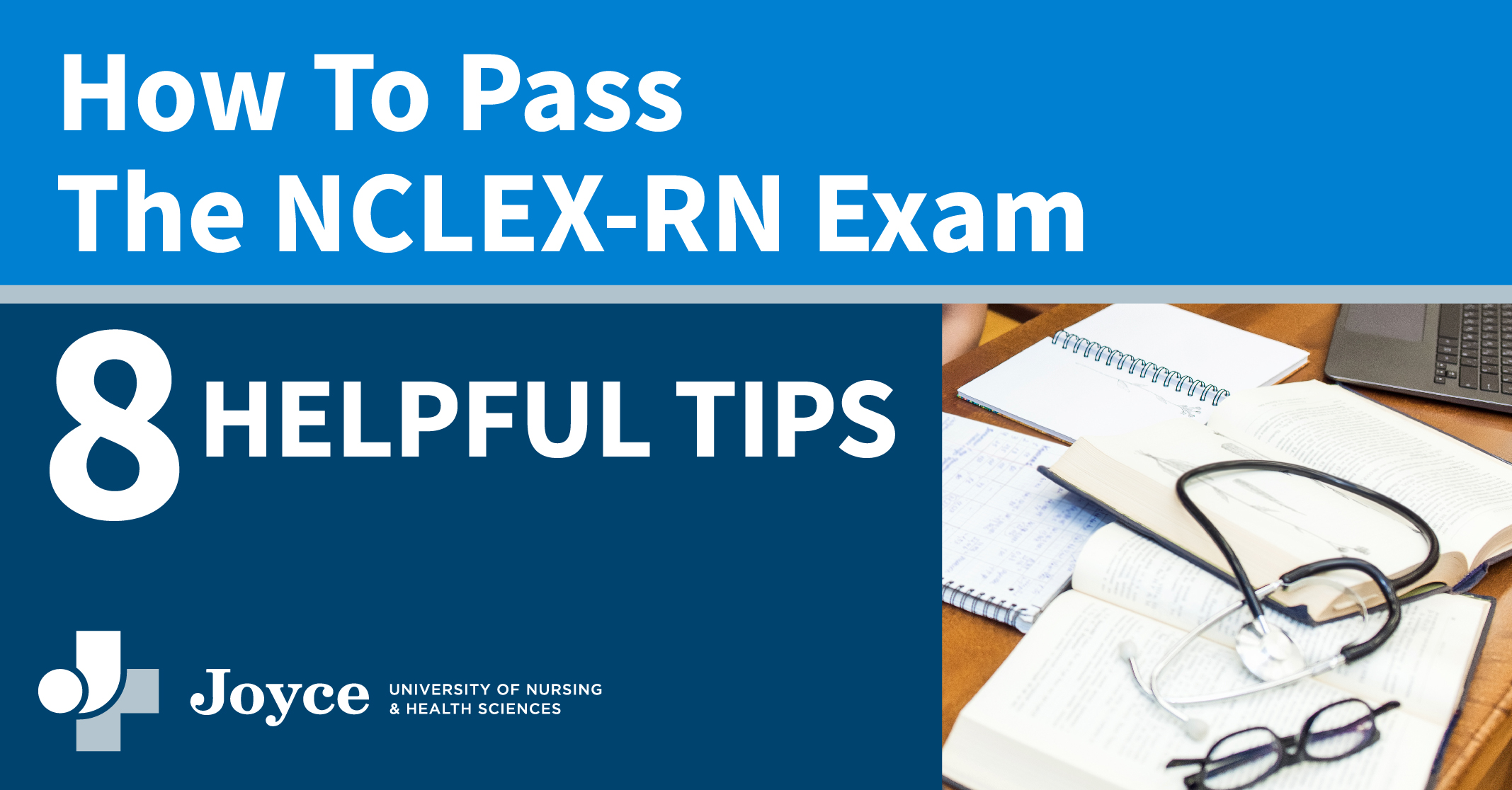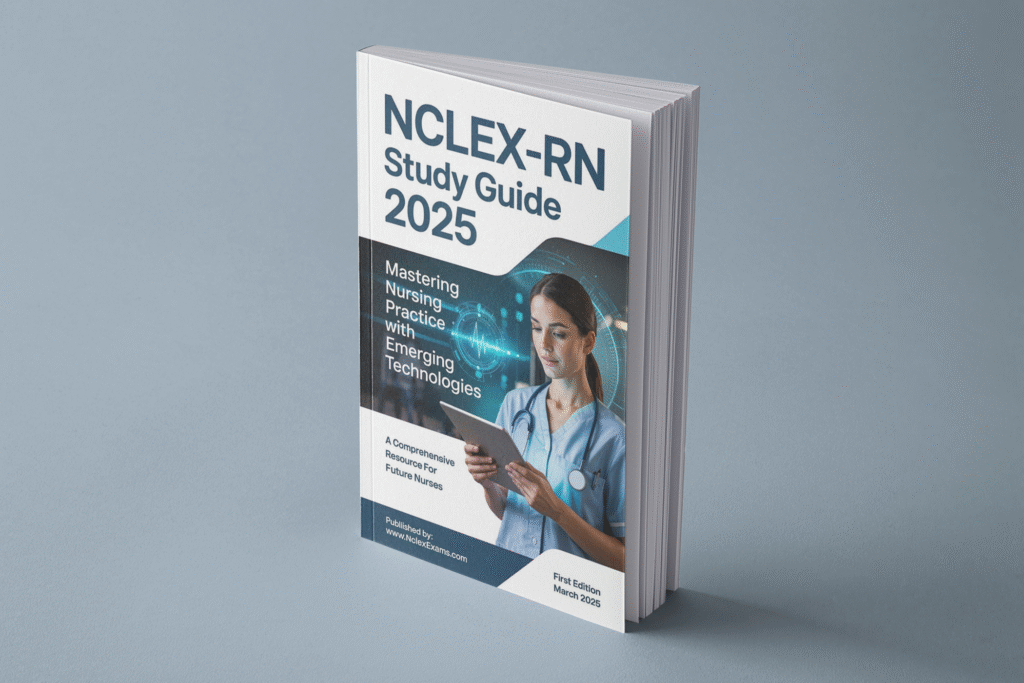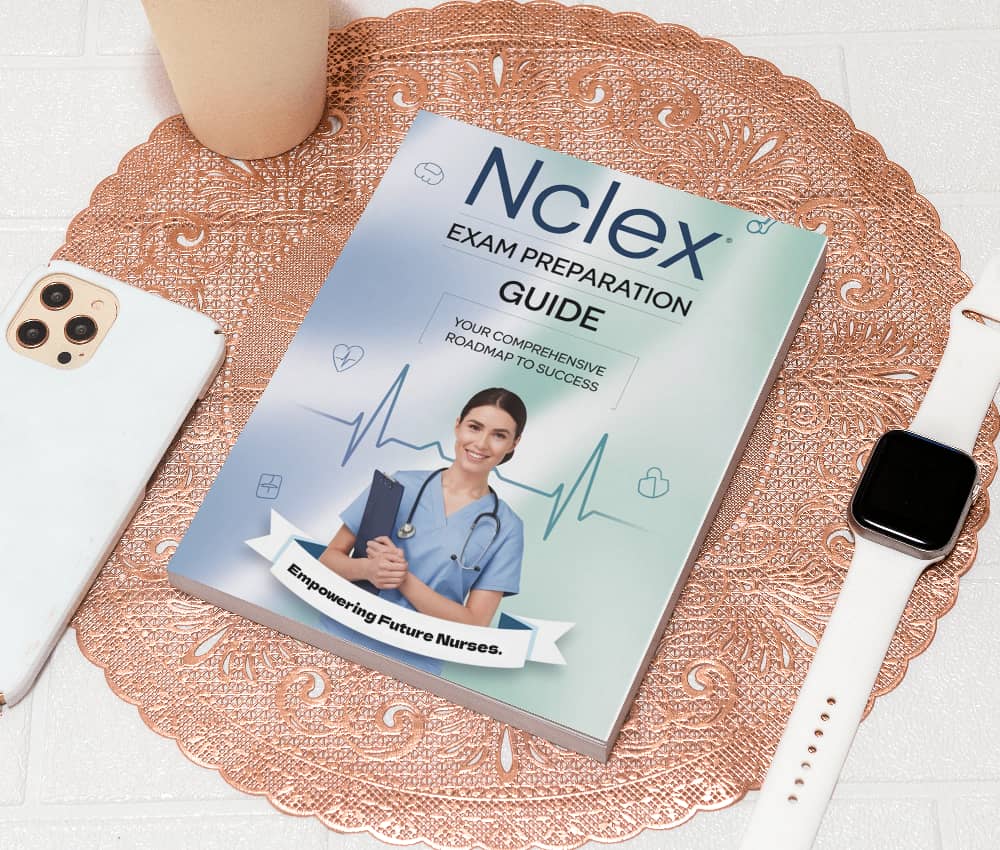The National Council Licensure Examination (NCLEX) is the final hurdle for nursing graduates before they can begin their professional careers. It’s a comprehensive exam designed to assess your readiness to practice safely and effectively as an entry-level nurse. While the NCLEX can seem daunting, a well-structured study guide and effective preparation strategies can significantly boost your confidence and chances of success.
Your Ultimate NCLEX Study Guide
Table of Contents
Understanding the NCLEX Exam Structure
Before diving into study methods, it’s crucial to understand the NCLEX’s adaptive format and content areas. The NCLEX is a Computer Adaptive Test (CAT), meaning the exam adjusts to your ability level. Questions are presented one at a time, and the difficulty of subsequent questions depends on your previous answers. The exam covers four major Client Needs categories:
- Safe and Effective Care Environment: This includes Management of Care and Safety and Infection Control.
- Health Promotion and Maintenance: Focuses on wellness and disease prevention.
- Psychosocial Integrity: Addresses mental, emotional, and social health.
- Physiological Integrity: The largest section, covering basic care, pharmacology, risk reduction, and physiological adaptation.
Essential Components of an Effective NCLEX Study Guide
1. Comprehensive Content Review
Your study guide should cover all the essential nursing content areas tested on the NCLEX. This includes medical-surgical nursing, pediatrics, obstetrics, psychiatric nursing, and community health. Don’t just skim; aim for a deep understanding of core concepts.
2. Practice Questions and Rationales
This is arguably the most critical component. Your study guide should include a vast bank of practice questions that mimic the NCLEX format, including multiple-choice, SATA (Select All That Apply), hot spot, ordered response, and the new Next Generation NCLEX (NGN) item types. More importantly, each question should come with detailed rationales for both correct and incorrect answers. Understanding why an answer is right or wrong is key to improving your critical thinking.
3. Test-Taking Strategies
Effective test-taking strategies are vital for the NCLEX. Your study guide should teach you how to approach different question types, manage your time, and eliminate incorrect answer choices. This includes strategies for prioritizing patient care, identifying keywords, and understanding the intent of the question.
4. Clinical Judgment Focus (for NGN)
With the introduction of the NGN, clinical judgment is paramount. Your study guide should incorporate case studies and scenarios that require you to apply the NCSBN Clinical Judgment Measurement Model (CJMM). This involves recognizing cues, analyzing cues, prioritizing hypotheses, generating solutions, taking action, and evaluating outcomes.
5. Study Schedule and Planning
A good study guide often comes with a suggested study schedule. This helps you organize your time, prioritize content, and ensure you cover all necessary material before your exam date. Tailor the schedule to your personal needs and learning pace.
Bestsellers
Tips for Maximizing Your Study Guide
- Active Learning: Don’t just passively read. Engage with the material by taking notes, creating flashcards, teaching concepts to others, and actively working through practice questions.
- Identify Weaknesses: Use practice questions to pinpoint your weak areas. Once identified, dedicate more study time to these topics.
- Simulate Exam Conditions: Practice answering questions under timed conditions to build stamina and reduce test anxiety.
- Stay Consistent: Regular, consistent study sessions are more effective than cramming.
- Prioritize Self-Care: Don’t neglect your physical and mental well-being. Get enough sleep, eat healthy, and take breaks to avoid burnout.
Conclusion
Your NCLEX study guide is your roadmap to success. By choosing a comprehensive guide and diligently following its recommendations, you can build the knowledge, skills, and confidence needed to pass the NCLEX and embark on your rewarding nursing career. Remember, success is not just about memorization, but about understanding and applying nursing principles to provide safe and effective patient care.





